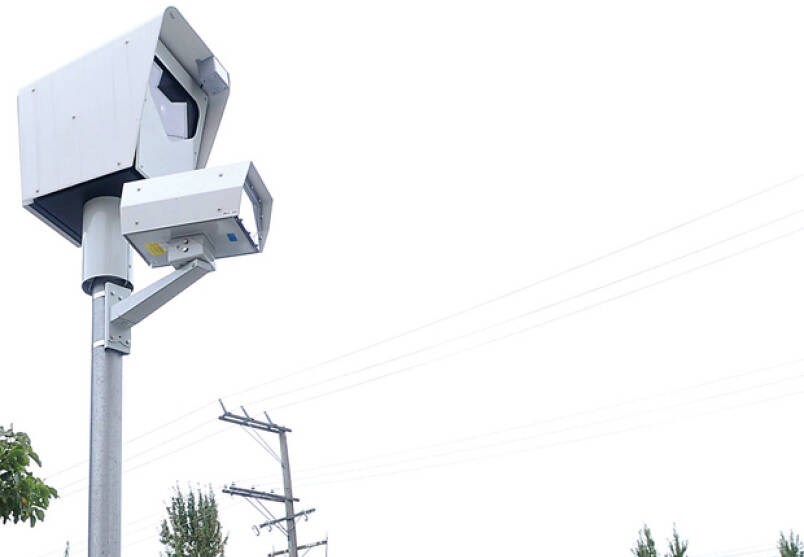The City of North Vancouver is seeing red on traffic safety.
City council voted unanimously Monday night to ask the province to install speed and red-light cameras at high-crash intersections in the municipality where there have been 20 serious crashes within a five-year period. Council also wants to halt right-hand turns on red lights at those intersections, to improve safety for pedestrians and cyclists. Council has directed staff to report back on that.
Coun. Jessica McIlroy brought forward the request for red-light cameras, saying about 60 per cent of all crashes in the city happen at those intersections.
According to the head of the emergency department at Lions Gate Hospital, over a 10-year-period between 2009 and 2019 there were 881 traffic-related hospitalizations, said McIlroy.
Across the province there are 140 red-light and speed cameras installed in 26 communities. Under the program, the province collects money from violation tickets and hands it back to municipalities to pay for community safety and policing programs.
So far, however, there are no red-light cameras in the city.
In fact, there are only three cameras on the North Shore as a whole – one at Marine Drive and Taylor Way, one at Marine Drive and Capilano Road and one at Main Street and Mountain Highway. All have recorded more than 50 crashes per year, according to ICBC
Coun. Tony Valente said he expected the idea of red-light cameras to trigger some blowback from the public, but the support he’s heard for the plan “exceeded expectations.”
Some councillors related personal stories of traffic accidents and near misses. Coun. Angela Girard said she had a “very close incident” involving not seeing a pedestrian crossing a street as she was driving to city hall.
Coun. Holly Back recalled her son being hit by a speeding vehicle when he was just 18 months old and being told by doctors he would likely not survive. (He did and is now an adult in his 40s).
Mayor Linda Buchanan said while ticketing is usually the last option to consider, “behavioural change is really hard” without a strong nudge in the right direction.
Dr. Alex Choi, medical health officer for the North Shore, came to council Monday to support the call for red-light and speed cameras.
“If someone is hit by a car at 32 kilometres an hour, we know that actually nine out of 10 people survive,” she said. But that number drops to one of 10 at 64 km/h.
“Speed is the most significant factor in most of our injuries and fatalities on the North Shore,” she said. She added research from the U.S. indicates speed cameras cut speeding by almost 60 per cent and decrease crashes causing death or serious injury by 19 per cent.





